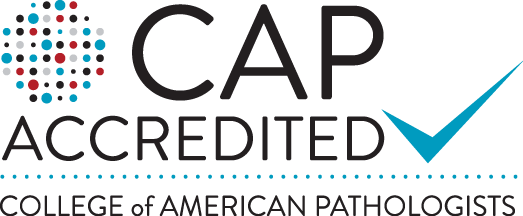Medicare Penalizes Washington-Area Hospitals For Readmissions
Posted: October 14, 2014
Every general hospital in the District of Columbia and its Virginia suburbs has been fined for having too many Medicare patients readmitted within a month for additional treatment, federal records show.
Medicare penalized a record 2,610 hospitals nationally in its third year of fines. Reston Hospital Center and Fauquier Hospital in Warrenton were among 39 hospitals in the country to receive the maximum penalty: a 3 percent cut in payments for every Medicare patient admitted from this month through September 2015.
Providence Hospital will be docked 2.61 percent, the most of any hospital in the District, according to an analysis of the Medicare data by Kaiser Health News. Two hospitals that are part of regional giants, Sibley Memorial Hospital — part of the prestigious Johns Hopkins Medicine system — and Inova Fair Oaks Hospital will each lose 1.93 percent of Medicare payments. Culpeper Regional Hospital will lose 2.87 percent.
Maryland hospitals are excluded from the program because that state has a unique payment arrangement with the federal government.
The penalties, created by the Affordable Care Act, are intended to jolt hospitals to pay attention to what happens to their patients after they leave. Stephen Jencks, one of the first researchers to document the nation’s high readmission rates, said “this really fairly modest step” has “persuaded a lot of hospitals to talk in ways they simply were not talking 10 years ago.”
Last year, nearly 18 percent of Medicare patients who had been hospitalized were readmitted within a month, down from 19 percent in 2012. Still, across the country about 2 million patients return a year, costing Medicare $26 billion. Officials estimate $17 billion of that comes from potentially avoidable readmissions.
A number of hospitals, including Reston, Inova and Providence, said they now regularly track their patients after they leave and send aides or hired health services to the homes of patients considered most at risk of readmission to give them follow-up care and instructions. Some hospitals also are working directly with nursing homes and home health agencies that take over responsibility for their patients.
“This is work we value and we’re engaged in, and we’d be engaged whether or not there was a penalty,” said Patricia Evans, Providence’s chief medical officer. “But it’s especially motivating.”
Reston said in a statement that the fines are based on readmissions from July 2010 through June 2013 and do not reflect recent improvements. Inova said its readmission rates have been getting better in the two years since it began directly overseeing the recovery of its patients.Preview
Rodger Baker, Fauquier Health’s president and chief executive, said his hospital’s readmissions have been dropping, and “we continue to work diligently.” Sibley and Culpepper did not respond to requests for comment.
More than 1,400 hospitals are exempted from the penalties, including the only two in the District that avoided punishment: Children’s National Medical Center and the Veterans Administration.
Under the new fines, three-quarters of hospitals that are subject to the Hospital Readmissions Reduction Program are being penalized for a total of $428 million.
While many of the penalties are tiny — Inova Fairfax Hospital’s payments are being lowered by 0.03 percent — 535 hospitals nationally will lose 1 percent of their payments or more, according to the KHN analysis.
In New Jersey, every hospital but one will lose money this year. So will a majority of hospitals in 30 states, including California, Florida, Georgia, Illinois, Massachusetts, New York, Ohio, Pennsylvania, Tennessee and Texas. The average fine for Washington-area hospitals this year was 1.17 percent, three times higher than it was last year, and all four hospitals that escaped fines last year received them.
One reason for the higher and more widespread fines is that this year Medicare began evaluating readmissions of two new categories of patients — those initially admitted for elective knee or hip replacements, and those suffering lung ailments such as chronic bronchitis. Those patients were assessed along with the heart failure, heart attack and pneumonia patients Medicare has examined since the penalties began in October 2012. “Every time they add conditions, the penalties go up,” said Nancy Foster, a quality expert at the American Hospital Association.
Federal records show Providence’s readmission rate for hip and knee replacements was 75 percent beyond what the government considered it should have been, and Reston’s was 46 percent higher. Sibley, which performed more hip and knee replacements for Medicare patients than all but one other hospital in the region, had a readmission rate 11 percent higher than deemed appropriate, the records show.
As the penalties have played out, an increasing number of prominent experts are voicing concerns that the punishments are too harsh and doled out unfairly. For instance, Medicare lowers payments to hospitals even if they have reduced their readmission rates from the previous year — as long as their rate is higher than what the government believes is appropriate for that hospital. “You have to run as fast as everyone else to just stay even,” Foster said.
Source: The Washington Post


